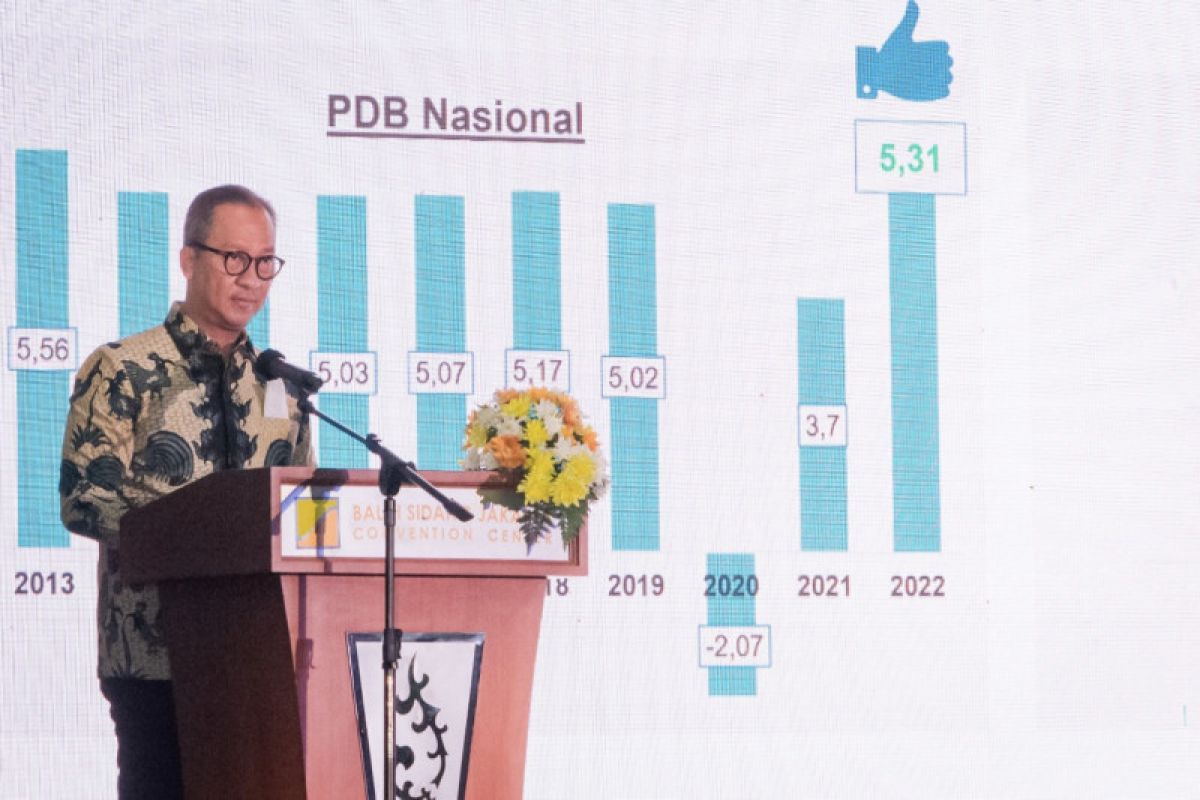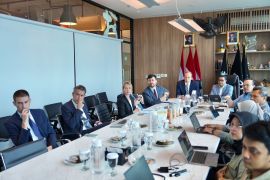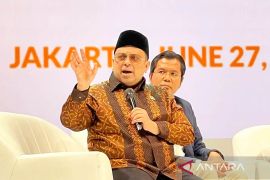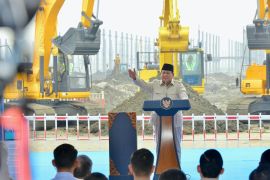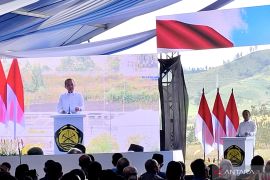The minister echoed his optimism following the S&P Global Report that showed Indonesia's Manufacturing Purchasing Managers' Index (PMI) at 51.2 in February or remained expansive.
"This expansive level has extended the recovery period of the manufacturing industry after 18 months amid the impact of global economic pressures. It means that our manufacturing industry operators still have high self-confidence or optimism," Kartasasmita noted in a statement obtained here on Thursday.
Indonesia's manufacturing PMI in the second month of the year surpassed those of countries, such as Myanmar, at 51.1; Malaysia, 48.4; Taiwan, 49.0; Japan, 47.7; the United Kingdom, 49.2; the US, 47.8; the European Zone, 48.5; France, 47.9; and Germany, 46.5.
Kartasasmita stated that the national manufacturing industry's activity, which is still running impressively, is in accordance with the results of the February Industrial Confidence Index (IKI) released by the Ministry of Industry, recorded at 52.32.
The expansive level recorded a significant increase of 0.78 points as compared to January.
"I am sure that our manufacturing industry will remain expansive in line with the gradual improvement in global geopolitical and economic conditions. Apart from that, it is supported by government policies in an effort to create a conducive business climate,” he explained.
Responding to the report regarding declining business confidence, the minister said that the IKI survey during the same period also showed a small percentage of pessimism among industry players.
"As many as 64.29 percent of business actors expressed optimism about industrial business conditions for the next six months," Kartasasmita elaborated.
He noted that additionally, the percentage of business actors' pessimism had decreased, from 13.60 percent in January 2023 to 10.81 percent in February 2023.
Meanwhile, 24.90 percent of business actors stated that their business conditions were stable for the next six months, he stated.
Kartasasmita emphasized that the ministry is determined to continue to focus on encouraging domestic processing of natural resources.
The downstreaming process is proven to have a broad impact on the national economy, such as by increasing investment, employment, and exports.
"We will continue to pursue the downstreaming and deepening of the manufacturing structure because it is part of the efforts to strengthen the supply chain. This will also spur the competitiveness of our industry," he stated.
The government has emphasized that downstreaming will not only be conducted in the mineral and coal mining sector but will also target other sectors, such as agriculture, plantations, and fisheries.
In addition, the ministry is consistent in making it easier for industrial players to obtain raw materials, so that productivity can run well.
"Maintaining the availability of raw materials is one of the factors that causes our industry to increase," the minister stated.
The ministry also continues to accelerate the Increasing Use of Domestic Products (P3DN) program. This is because efforts to increase spending on domestic products are believed to have contributed to accelerating national economic growth.
"In 2022, around US$762 trillion from the APBN, APBD, and BUMN had been spent on domestic products. This is a very large value, and this can be an opportunity for industry players, who have good-quality products," he stated.
Another key to economic growth is increased investment.
"The government has made efforts to facilitate permits. We also encourage industrial growth outside Java because it supports economic equality," Kartasasmita stated.
Regarding the achievements of Indonesia's manufacturing PMI in February 2023, Economics Associate Director of S&P Global Market Intelligence Jingyi Pan noted that the condition of the manufacturing sector in Indonesia continued to improve at a steady and sustainable pace in February.
"Domestic demand has reportedly strengthened that supports manufacturing output growth, as foreign demand is still in the process of recovering," he explained.
Related news: Raw nickel export ban to be beneficial to public: President Jokowi
Related news: Jokowi to declare ban on raw copper exports this year
Translator: Sella P Gareta, Sri Haryati
Editor: Rahmad Nasution
Copyright © ANTARA 2023
